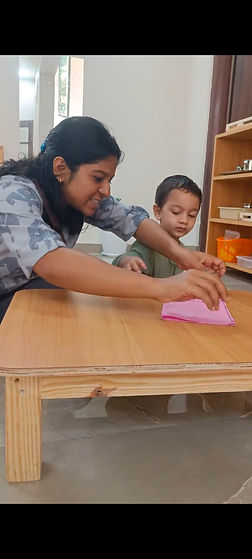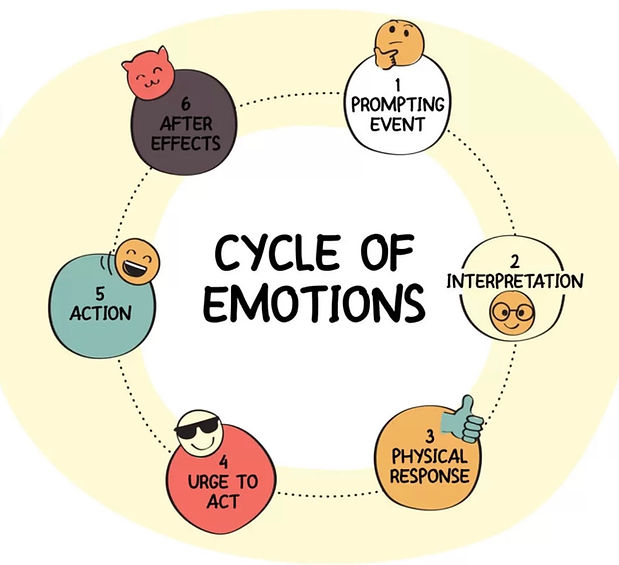
PRIMARY PROGRAM
Our Primary Program, designed for children aged 3 to 6 years, offers a transformative learning experience rooted in the Montessori philosophy. This multi-age classroom fosters independence, creativity, and a lifelong love for learning.

Hands-On Learning with Montessori Materials
At the heart of the Montessori Primary Program are specialized, self-correcting materials that engage children in active learning. Each material is designed to isolate a specific concept—such as counting, language sounds, or shapes—and provide opportunities for repetition and mastery. For instance, children may use bead chains to internalize mathematical concepts or sandpaper letters to connect tactile and visual senses while learning to write.
This hands-on approach fosters curiosity, concentration, and a deeper understanding of abstract ideas by connecting them to concrete experiences.

Individualized Curriculum
Every child is unique, and the Montessori method celebrates this by tailoring learning to individual needs and interests. Teachers observe each child’s developmental progress and provide lessons at the right moment, ensuring that they are neither bored nor overwhelmed. Children are free to choose activities that resonate with them, which builds intrinsic motivation and a sense of ownership over their education.

Language Development
The Montessori Primary Program emphasizes a strong foundation in language through phonetic awareness, vocabulary building, hands-on writing activities and reading corner. Tools such as sandpaper letters, moveable alphabets, and storytelling encourage children to develop skills in reading and writing at their own pace. The environment is rich in spoken language, fostering communication skills and a love for literature

Mathematical Foundations
Montessori math materials introduce abstract concepts in a tangible way. For example, the golden bead material helps children understand place value, while number rods and counters provide visual and tactile experiences of quantity and sequence. These materials guide children through a natural progression from concrete manipulation to abstract reasoning.

Cultural Studies and Exploration
Children are exposed to a wide array of cultural subjects, including geography, history, biology, art, and music. Montessori materials, such as puzzle maps and three-part cards, introduce complex topics in an accessible and engaging way. This exposure helps children develop an appreciation for the diversity of the world and their place within it.

Social and Emotional Development
Through guided interactions and the prepared environment, children learn to navigate social situations with grace and respect. Montessori teachers model and encourage emotional regulation, problem-solving, and conflict resolution. These skills empower children to build meaningful relationships and contribute positively to their community.
